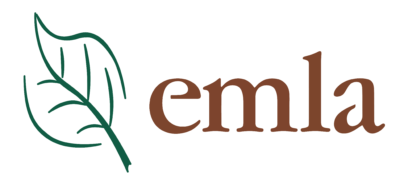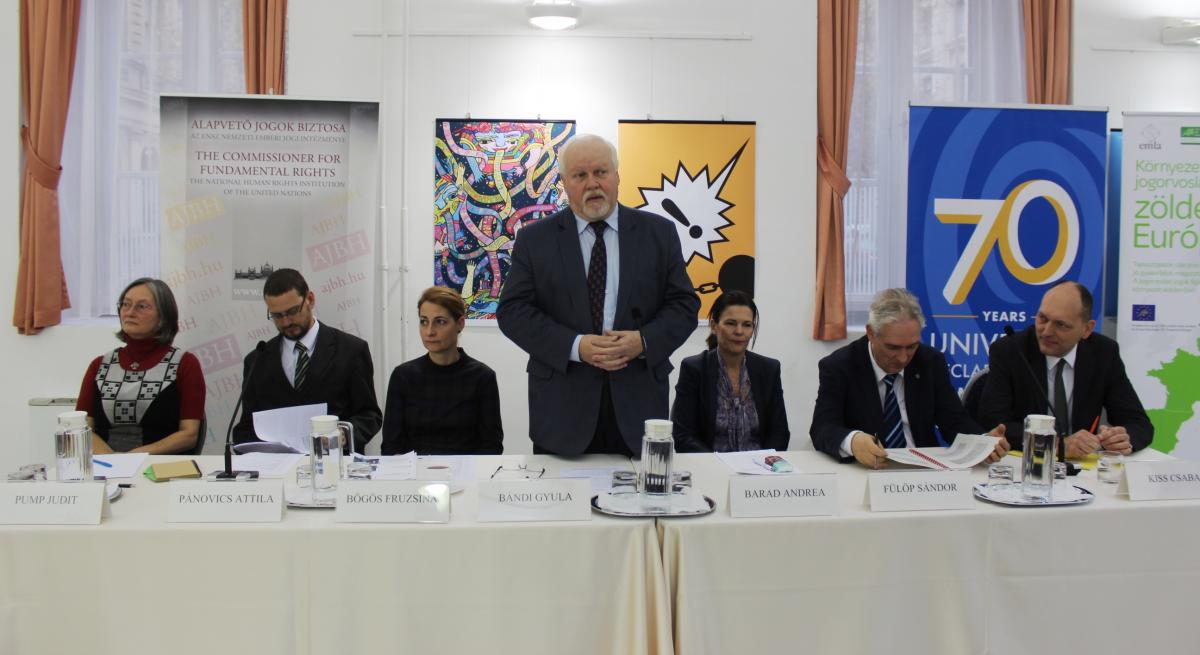

The year 2018 is a special one in the life of the Aarhus family. We celebrate the 20th anniversary of the signing of the Convention, or as we say, its 20th Birthday.
There were a number of memorial events throughout the year, most prominently the event in May in Rome, organized by the Italian Ministry of Environment, Land and Sea and the June special session of the Working Group of the Parties to the Aarhus Convention in Geneva.
Countries parties to the Convention also celebrate this important date, e.g. in Hungary, the Deputy Ombudsman for Future Generations initiated a cooperation with J&E’s Hungarian member organization EMLA to hold a joint session on the achievements of the Aarhus Convention in Hungary.
As the organization of the event started, it quickly became obvious that what else could serve better to kick-off the series of 6 training sessions to be held in Hungary under the auspices of the EARL project than this occasion. All ingredients were present: a prestigious venue (the Ombudsman Office), prominent presenters (the Deputy Ombudsman for Future Generations, a former and a current ACCC member, university professors and practicing environmental lawyers) and a large audience (50+ participants).
This date also served as a good occasion to hold the first training in the EARL project and back-to-back with it, the Hungarian workshop in the Visegrad 4 Aarhus Center project.
The meeting was held on 21 November in Budapest and approximately 50 persons attended it, mainly coming from the regional environmental competent authorities all across the country, but the judiciary, the academia and the civil sector were also represented.
Presentations in the morning segment of the day were largely about bringing up memories on how people remember the process leading to and surrounding the adoption of the text of the Convention. Witnesses of past who were even involved in the drafting of the first textual version of the Convention shared their memories on the events long gone.
The afternoon session was the actual training component of the meeting. As a starting point, a sociologist described why people want to participate and what patterns can be identified in participatory processes. Legal and practical barriers of access to justice were identified, together with provisions of the Convention and adjacent case law that helps members of the public participate in environmental decision-making. An EU and Visegrad 4 outlook on how other countries regulate and practice access to justice closed the day where participants were asked to fill in an evaluation questionnaire.
The event of J&E has received funding from the European Union through its LIFE NGO Grants funding scheme. The sole responsibility for the presentations lies with the authors and the European Commission is not responsible for any use that may be made of the information contained therein.
The event is co-financed by the Governments of Czechia, Hungary, Poland and Slovakia through Visegrad Grants from the International Visegrad Fund. The mission of the fund is to advance ideas for sustainable regional cooperation in Central Europe.
The event was publicized on the Facebook page of the Ombudsman Office, the Facebook page of EMLA and of Justice and Environment .

